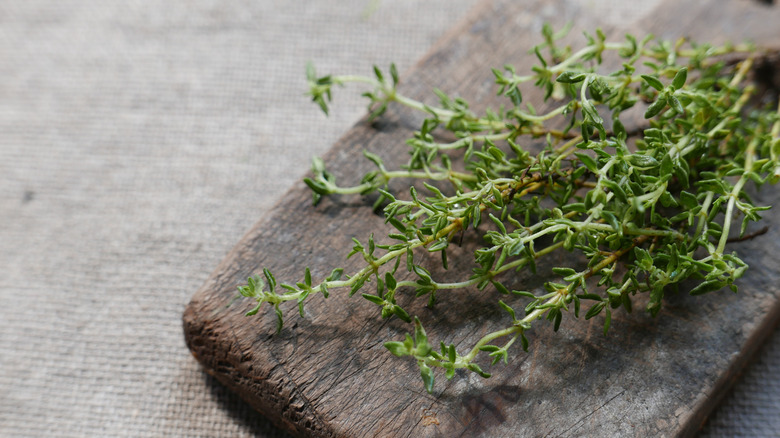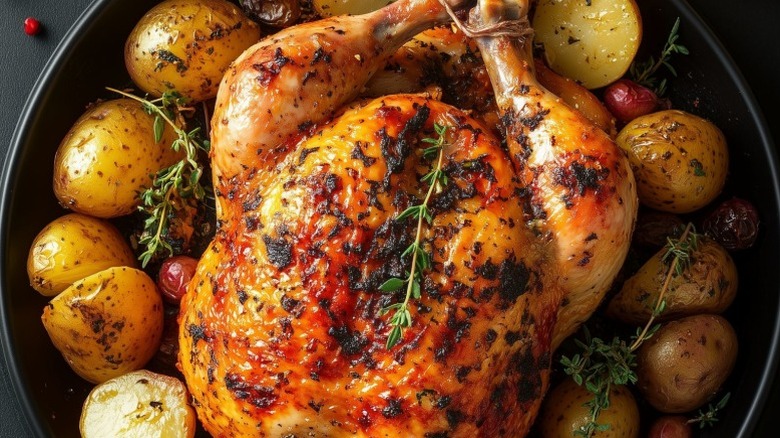How To Chop Fresh Thyme Like You've Been Doing It For Years
One of life's greatest pleasures is using fresh herbs to make a delicious meal or beverage. Although some recipes call for the use of whole leaves (like with basil or cilantro), other herbs, such as thyme, benefit from chopping the leaves into tiny pieces. When you cut thyme leaves up, they release natural oils. This process intensifies thyme's aroma and uniformly disperses the flavors throughout the entire dish.
Unlike softer herbs, thyme has a thicker, stockier stem, and the leaves are quite hearty despite their small size. To make chopping thyme leaves easier, you'll need to separate the stem from the leaves. It's a little tricky but worth the extra effort. Start by holding the tip of a single stem of thyme with one hand. Then use your thumb and pointer finger on the opposite hand to pinch the stem and slowly pull the leaves down toward the base of the stem. This removes the leaves easily.
Use up leftover herb stems in stocks or infused oils, and place the leaves on a clean cutting board. Repeat the process of removing the leaves until you've created a decently sized green pile. Of the most crucial knives to have in your kitchen, a well-sharpened chef's knife is the best choice for uniformly chopping the leaves.
What to cook with chopped thyme
Thyme is soft, underrated, and blends well with a variety of ingredients and textures. This herb has two superpowers: its versatility and its ability to hold up well under long durations of heat. Since heat helps coax out thyme's savory, mellow flavors, allowing them to more deeply saturate a protein or vegetable, it works really well in recipes that call for several hours of cooking time. Think comfort foods, like a roasted Thanksgiving turkey, a decadent homemade lasagna, or a cozy batch of savory chicken noodle soup.
The magic of heat makes thyme a great grilling herb, too. There are a couple of ways to take advantage of this temperature transformation. The simplest option is to add chopped thyme to a homemade olive oil-based marinade and then use it liberally to prepare marinated pork chops, chicken breasts, or delicate white fish before tossing them on the grill. If you're feeling fancy, whip some chopped thyme into a delicious compound butter, and add a nice dollop to steaks just before taking them off the grill. Whatever you do, don't be afraid to use lots of it.

